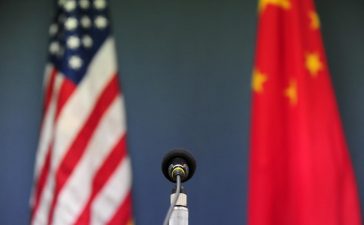
Lord chancellor Alex Chalk has defended the government’s approach to illegal migration, telling his counterparts in the G7 bloc that international law must be a ‘living instrument’ and ‘not suspended in time’.
Chalk’s comments, at a summit of justice ministers in Venice, come amid enduring controversy over legislation passed in April to deport asylum seekers to Rwanda. Critics include the Council of Europe, which has said passage of the Safety of Rwanda (Asylum and Immigration) Bill ‘raises major issues about the human rights of asylum seekers and the rule of law more generally’.
The lord chancellor and justice secretary stressed that international law must remain ‘in lockstep’ with the changing 21st-century world or ‘face irrelevance’.
He said: ‘The international rules-based order, and so many of the legal frameworks we rely on for our peace and prosperity, emerged out of the ashes of world war two – a completely different world from the one we live in today. Our nations are now grappling with new, thorny issues, from how to respond to mass migration as millions march across the world to the spectre of climate change, and the advent of new technologies, like AI.
‘If the law is to be respected by our citizens, it must deliver for them. Its frameworks must be capable of responding to 21st-century problems. To be irrelevant is to be ignored, or still worse held in contempt.’
Chalk said the rule of law ‘isn’t just about ensuring all are equal before the law’ but also ‘ensuring that those who don’t abide by the law aren’t materially advantaged by doing so’. He added: ‘We must uphold the rule of law, but it can also help us to protect our borders if we approach it in the right way. The law is a living instrument, not suspended in time. It must underpin our citizens’ rights and freedoms, and to do that, it must also be up to date, and tailored to reality.
‘As a group of nations, it’s right that we should consider together the direction of travel for international law.’











